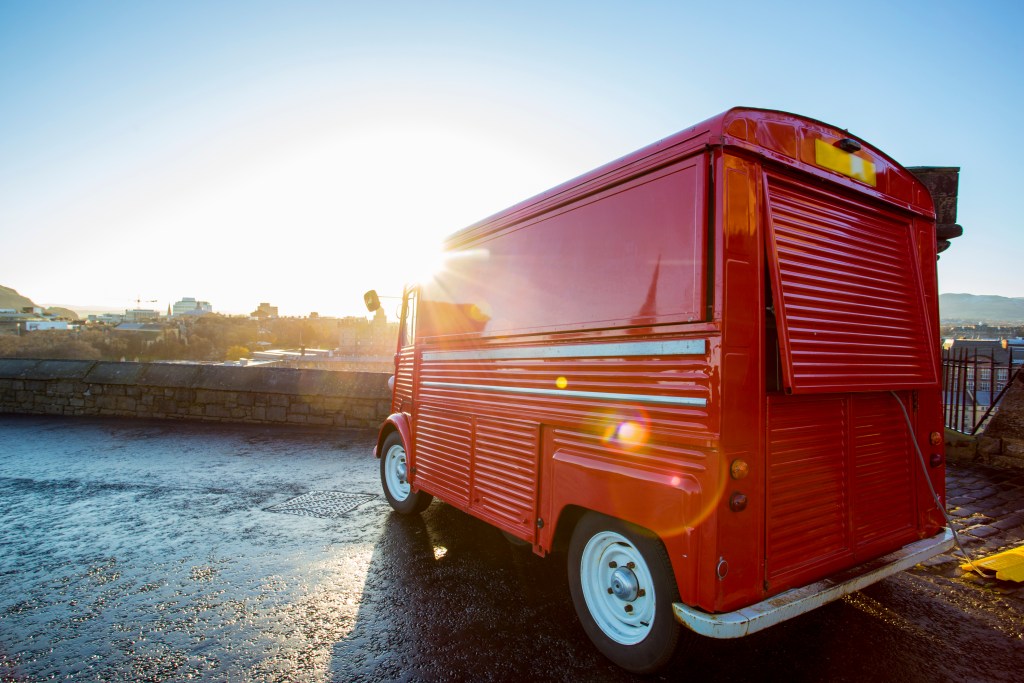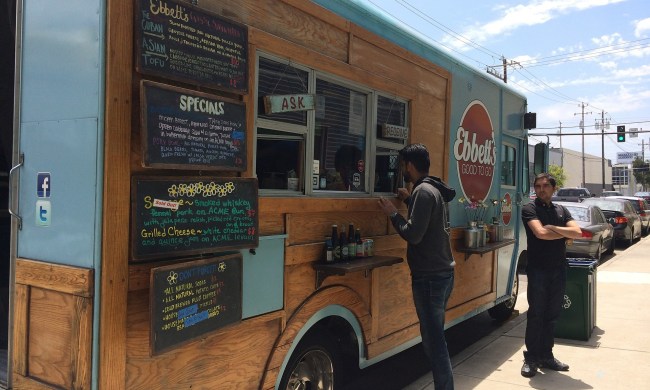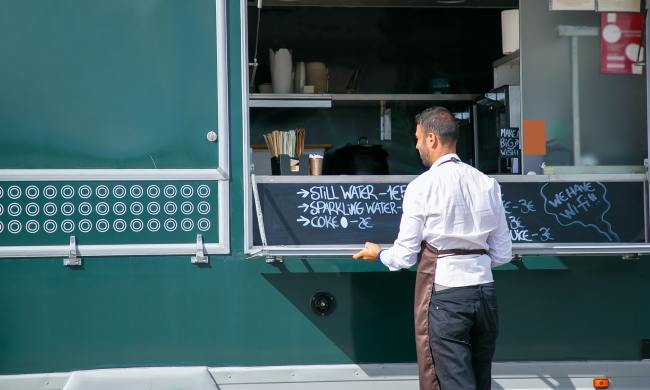Most weddings have a set menu for the reception. Whether it’s the venue they host at or a catering company the couple hires, it’s more common to have fewer options. However, many wedding guests want more options, and the married couple might want a bigger menu, too — but they don’t have the budget to pay for every possible option.
Catering is a solid option, but if the reception is somewhere without a kitchen or a space to set up, this can also limit your dining options. If you haven’t considered a wedding food truck, you’re missing out. There are tons of options out there, and you might be able to provide more options while staying on budget. Let’s explore the costs of having a food truck at your wedding (or another event) and determine if it’s the best option for you.
Is it cheaper to have food trucks at your wedding?
It can be cheaper to have food trucks at your wedding, depending on the type of cuisine you select. Here’s a quick reference list for price ranges from Roaming Hunger, a food truck rental service.
- Taco truck: $10-$18 per person with a rental minimum of about $900-$1,200
- Burger food truck: $12-$20 per person, with a rental minimum of about $1,000-$1,300
- Pizza food truck: $12-$20 per person, with a rental minimum of about $1,000-$1,300
- Barbeque food truck: $10-$20 per person, with a rental minimum of about $1,000-$1,300
- Ice cream truck: $5-$10 per person, with a rental minimum of about $400-$800
- Lobster food truck: $18-$25 per person, with a rental minimum of about $1,200-$1,500

How much is it to hire a food truck for an event?
You might wonder if there’s a minimum cost for renting a food truck for your wedding. This likely depends on:
- Cost of the actual food
- Number of wedding guests
- Labor and preparation time
- Travel expenses
Prices vary significantly depending on all the above and special ingredients or special dates, such as major holidays and busy seasons like summertime weddings.
Cost of the actual food
Compare food costs and other fees of different food trucks you’d like at your wedding. You’ll probably have to negotiate a price based on the number of guests, plus the actual cost of food. Most food trucks have a minimum price and require a deposit, which guarantees income for that day, so they can operate at a profit.
Price per person
A food truck’s space is limited and every inch counts. Preparing the menu for over 300 guests needs some consideration and preparation. A single food truck can serve approximately 60 to 100 guests per hour. With this many guests, it may be worthwhile to invest in more than one food truck for your wedding day. Even if you reserve the trucks for one to two hours, you should be able to feed all your guests.
It’s not worth a food truck owner’s time to show up for a small number of guests, without at least charging a minimal fee. To make sure you’re on the same page, ask the food truck owner for a non-binding quote to see what’s possible within the determined budget.
Where can I rent a wedding food truck?
Your best bet for finding a food truck to rent for your wedding is through a website with its own directory. Unless you have your heart set on a certain food truck and plan on negotiating with the owner yourself, consider using FoodTruckBooking.com or Roaming Hunger.
Of course, you can always check with food trucks local to your area. If you’re a DIYer and want to plan out every detail of your wedding, this may be the best course of action for you.

How to rent food trucks for your wedding
Now that you know general costs and where to rent a wedding food truck, let’s look at the basic steps you should take when choosing one. Here are some guidelines you can follow:
- Determine the cost to rent a truck(s) for your wedding and set your budget.
- Figure out how many trucks you’ll need to rent (and for how long) based on the number of wedding guests.
- Select the food truck menu for the event ahead of time. Remember to include drinks and desserts, too.
- Pick the best trucks for your event using a food truck rental site or Yelp to check reviews.
- Make sure the food trucks are in a safe space according to city codes.


